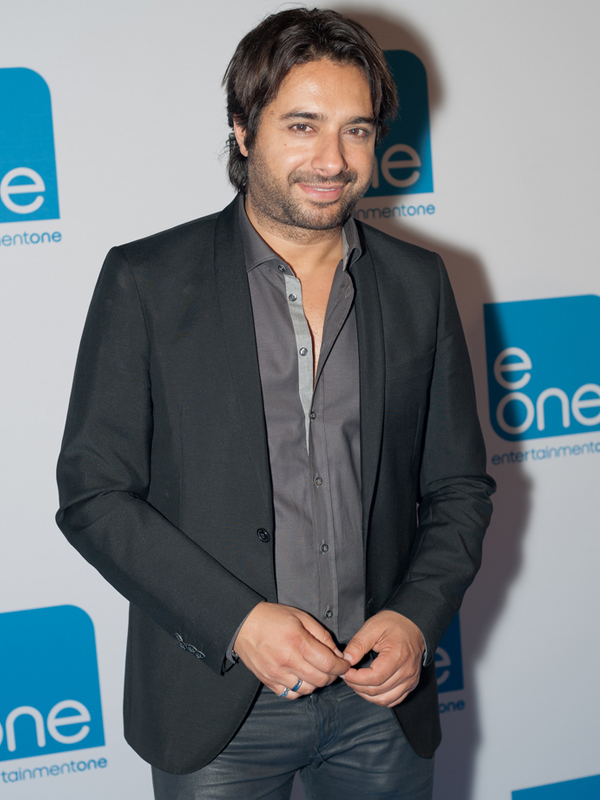Let me tell you what you already know: this weekend, Jian Ghomeshi was fired from the CBC because of — as per his manifesto on Facebook — his sex life. Then, The Star ran a story that revealed that four women had allegedly been victimized by the former Q host (whether at work or during their relationship with him), but they didn't want to come forward with their names because they were afraid of what would happen if they did.
Ghomeshi's defenders took these women's anonymity as permission to defend Ghomeshi even harder. Because: if these women had nothing to hide, why wouldn't they come forward? Why, in the wake of last year's xoJane article and its controversy, wouldn't these women want to open themselves up to verbal abuse? To threats? To name-calling, victim-blaming, and whatever else we see on the Internet every day when the legacy of a man in power is compromised by the women he's (allegedly, I GET IT) wronged?
So, as reliable as the day is long, the Internet proved these points.
The truth is, we still have a lot to learn about this specific Ghomeshi incident, but we're almost at-capacity in terms of what we've learned about the way we treat victims of sexual assault, harassment, or anything similar. Victims are judged. They're scrutinized. In this case, one — maybe one of the four, but who knows — is being painted by Ghomeshi himself as a "jilted ex" who's using their "50 Shades" (vomit — burn that reference, everyone, please) sex life as a basis for false claims. In the very same Star article about them, the writer made a point of mentioning all four women are well-educated and employed. As if that matters. (Even though society has made it very clear that it does.)
Ultimately, the fears of these women are being proven by every person who's already calling them a liar. The fears of every sex crime victim are being confirmed with every post in support of Ghomeshi, who not only disrespected the very community he bragged about being a part of (lest we forget he referened 50 Shades of Grey, which is a story about abuse — it is not a story about BDSM), but went on the offense by gaslighting the ex-girlfriend he was referring to; one "she was so crazy!" away from winning standard-sexual-assault-defense bingo. And then, like moths to a 47-year-old DJ flame, his followers — including Amanda Palmer and Elizabeth May — positioned themselves at his side, reminding everyone that there are two sides to every story; that we should listen, and take care, and ask questions, and wait.
And I agree. We should listen. And take care. And ask questions — to(wards) victims of sexual assault, abuse, and harassment. Men like Ghomeshi have been listened to for centuries. They've been defended, and pitied, and exhaulted to. The women who claim they've been assaulted or harassed at the hands of them have not. And whether it be in regards to Ghomeshi or any man in power or ANY MAN IN GENERAL, the way we are treating these anonymous women who repeated their stories which were painful to remember (and even more painful to go through), is a testament to our own reputation for smearing women who dare "betray" a man it's easy to like.
Our first reaction shouldn't be knee-jerk. Our first reaction should be logical — to listen. And to think, and to feel, and to wonder what the fuck any woman has to gain by coming forward in the wake of an alleged sex crime. For the most part — and we're seeing it now — the experience (of being honest) is painful, and it's difficult, and it brings all sorts of heat in terms of being harassed, undermined, and made fun of. With men like Oscar Pistorius getting a sprinkling of a sentence for the murder of his girlfriend, we know who usually comes out of these ordeals winning. We know (based on survivors and victims we personally know) that a slap on the wrist usually follows the crime of sexual violence (or the threat thereof). We know nothing usually happens. We know, that if the man has an audience, he will have ralliers who fight to make sure quieter voices are silenced. And we know that somehow, he will come out on top, and that everyone else involved will end up fighting to get out of bed every day for a while.
So here we are, with an opportunity not to be terrible. And in terms of Ghomeshi's "case," it's true: we do not know the full story. But we know that four women have told what they can, and that their bravery and fear should be acknowledged. I would be scared. You, if them, would be scared. And rightfully so: with every comment, insult, salicious tweet, and joke, we are telling every other victim that the same thing will happen to them; that if they dare talk about their own stories, they will be ridiculed and threatened into oblivion.
Let's — especially as women — tell them something else. And then, after what I'm sure will take all of our energy, let's make that something else come to pass.
In the words of Kathleen Hanna in The Punk Singer, "I wouldn't want to tell anybody the whole entire story because it sounded crazy. It sounded just, like, too big of a can of worms. Like, who would believe me? And then I was like, other women would believe me."










